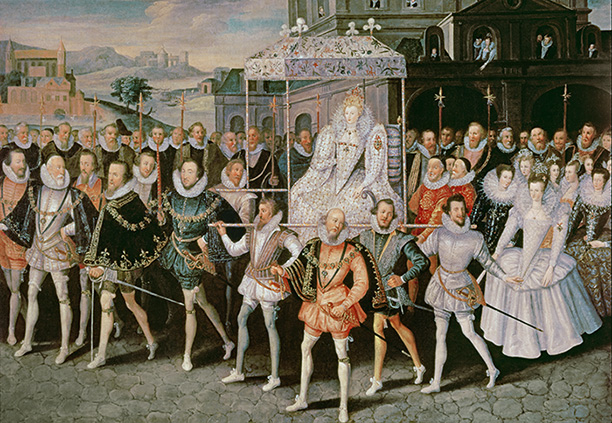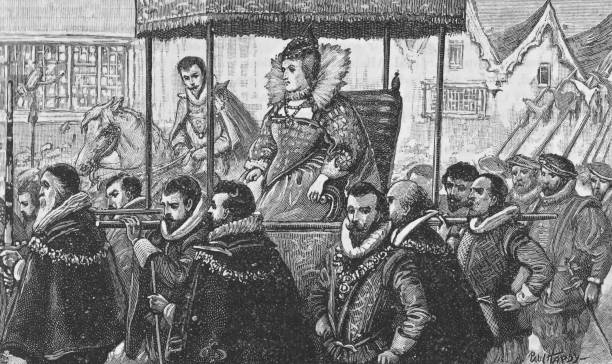Elizabeth I's reign provided a period of stability and peace in England
Elizabeth I governed England and Ireland for 44 years and 127 days, beginning on November 17, 1558, and ending on March 24, 1603. She is the seventh longest reigning queen in British history. Her reign is the third-longest among female monarchs, behind Elizabeth II and Queen Victoria. Elizabeth I's reign provided a period of stability and peace in England. This contrasted sharply with the preceding and succeeding times, which were characterized by theological warfare between Protestants and Catholics, as well as political struggles between parliament and the crown. During the Elizabethan period, the country is thought to have been more rich than much of Europe, with only Spain as a serious contender.
The period is remembered for the flowering of English theatre, driven by playwrights such as William Shakespeare and Christopher Marlowe, as well as the nautical prowess of Englishmen such as Francis Drake and Walter Raleigh. Some historians portray Elizabeth as a short-tempered, indecisive monarch who had more than her fair share of good fortune. A succession of economic and military issues eroded her popularity at the conclusion of her rule. However, Elizabeth is remembered as a captivating performer ("Gloriana") and a tenacious survivor ("Good Queen Bess") in a period when governance was rudimentary and restricted, and monarchs in neighboring nations suffered internal issues that jeopardized their thrones. Following the brief reigns of her half-siblings, her 44-year reign offered welcome stability for the country and helped to develop a sense of national identity.









